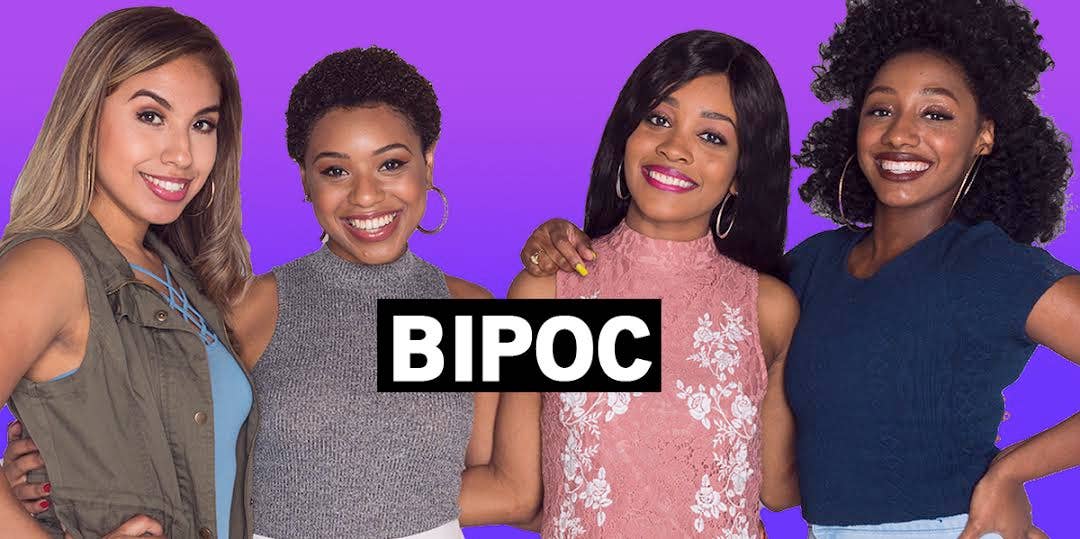What Does BIPOC Stand For?
BIPOC stands for Black, Indigenous, and People of Color.
 Rob Marmion / 123RF
Rob Marmion / 123RF As we educate ourselves more on systematic racism and police brutality in our country, there are new words, phrases and acronyms we are hearing, like BIPOC, that are important to understand.
Wednesday, June 3 begins the second solid week of civil rights protests following the police killing of George Floyd in Minneapolis. Floyd was accused of trying to pass a counterfeit $20 bill and police were called in response. He was arrested, and officer Dererk Chauvin pinned him to the ground, prone, by kneeling on his neck. Floyd, who was handcuffed and not resisting arrest, was begging for mercy for almost 9 minutes before he died from asphyxiation, though two autopsies differ in their findings. Chauvin is now under arrest for his murder.
The resulting outcry from American citizens has been unprecedented. There are protests on-going in every state and in other countries across the world, raising the issue of racism in policing and begging for solutions to the problem.
But talking about these issues can be confusing, not only because of how emotional they are but because they come with a whole new set of words, acronyms and abbreviations. You might automatically know that BLM stands for Black Lives Matter but what are the definitions of some of the other phrases? For example:
What does BIPOC stand for?
A movement as old as civil rights is bound to have its own vocabularly.
If you are new to reading coverage of social justice movements, some of the jargon and acronyms may be hard to decipher. For example, you might be clear that racism is the belief that one person's race or ethnicity makes them superior to people of other races or ethnicities. But you may not be familiar with the term anti-racist, which is the effort to dismantle systems of racist thinking, policy, and institutions. (The book How To Be An Anti-Racist by Ibram X. Kendi is a great explainer of all of this.)
There isn't anything wrong with not knowing all of this already, just like there is no shame in having to catch up with all the medical jargon we had to learn during this pandemic.
What does BIPOC mean specifically?
BIPOC stands for Black, Indigenous, and People of Color. According to the BIPOC project, the terms were linked together deliberately. "We use the term BIPOC to highlight the unique relationship to whiteness that Indigenous and Black (African Americans) people have," they explain. "Which shapes the experiences of and relationship to white supremacy for all people of color within a U.S. context."
What do they mean by white supremacy?
It's very easy to feel anger at the term white supremacy because it conjures visions of KKK members in white hoods burning crosses. But the BIPOC project is using it to describe the fact that America was constructed on the idea that white people were the most powerful group. Just look back at our founding documents for proof; the Constitution originally only counted each Black person — most of whom were enslaved at that time — as 3/5 of a person. Even today, we only have 56 Black people in Congress and only 43 Hispanic people. And this is the most racially and ethnically diverse Congress in the history of the United States.
We have made progress over the centuries but we still have further to go in distributing power equally.
What does Indigenous mean in this context?
Because BIPOC refers to the U.S. context, Indigenous means any of the descendants of the populations of people who lived here before European colonization. That includes the people we typically call Native Americans but also includes the Indigenous peoples from all over North, Central and South America who have migrated into the U.S.
Indigenous people have suffered from marginalization through official policy as well as cultural erasure through the way the entertainment industry depicts them. Artist and activist Gregg Deal says, “It’s unique for an Indigenous person to tell their own stories from their perspectives. It’s not just about the story, but it’s about the way that Indigenous people are often waiting for value to be placed on their story, which oftentimes has a Western context to it. It’s that Kevin Costner, Johnny Depp, Daniel Day-Lewis, Adam Sandler bridge that is meant to add value to Indigenous stories so the rest of the world cares."
What about the rest of People Of Color?
Black, Indigenous, and Hispanic people aren't the only non-white people in America. There are millions of people with non-European heritage in America. This country has welcomed immigrants from Asia, the Middle East, Caribbean nations, Pacific islanders, and people from India and Pakistan, just to name a few. All of them can tell stories of suffering from the effects of racism and their stories are just as meaningful and important as the people who were descended from the original occupants of the continent and those who were brought here on slave ships.
Are there ways to learn more about all of this?
There are countless great books and websites that can teach us all about the work on various civil rights fronts. This link leads to one document listing resources from books to podcasts that talk about ways to be anti-racist and learn the history of BIPOC people in America.
Rebekah Kuschmider has been writing about celebrities, pop culture, entertainment, and politics since 2010. She is the creator of the blog FeminXer and she is a cohost of the weekly podcast The More Perfect Union.

